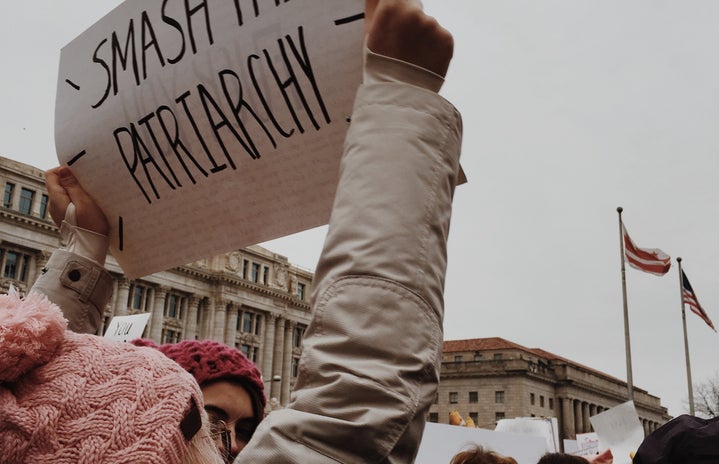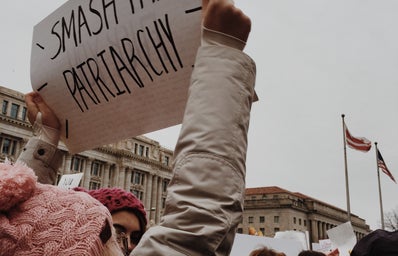Patriarchy oppresses all of us and when it’s critiqued it’s important to approach the discussion with this in mind: both ciswomen and transwomen are affected and men are also affected. We are all subjected to the oppression of the system in different ways. We can acknowledge then, the effects patriarchy has had on men, and also its creation by men. The gender roles inflicted on women and men, binary and nonbinary, force people to fit the feminine and masculine roles to uphold patriarchy.
The creation of patriarchy has sustained the desired effects. Moreover, unintended consequences such as incel culture have fueled toxic masculinity and become spaces for men to direct their misogyny and resentment towards women and people with a uterus. There is a fear many of us have of being in a room with men, walking across the street, or having general interactions with a man who isn’t known. This is the result of the trauma men have caused and I acknowledge that masculinity has caused men to feel like they need to be strong both mentally and physically. Advocates for men’s rights claim that men have the highest suicide rates in the nation. According to the CDC, the group of people with the highest suicide rates is Native American men, followed by white men (CDC, Suicide Data Statistics). That claim is correct, but this doesn’t make up for the pain and suffering men have caused.
We fear men and this has understandably caused unhealthy emotional responses, as well as feelings of loneliness. It seems very lonely to be a man and to fear feminity; vulnerability; and the many wonderful connections ciswomen, transwomen, and other disenfranchised groups have created. I would like to talk about men’s health but we have to begin our healing with those who have been hurt the most and build from there. The patriarchy thrives on classism, racism, homophobia, and sexism. We must address all of these issues.
Dealing with toxic masculinity can be very draining, moreover, we have to be the ones who aid in the healing. This is a very difficult task and it has many people doing the job of raising emotionally underdeveloped men. Many of us are constantly in relationships with men, either intimately or through family connections or work connections; we deal with toxic masculinity all day and it’s exhausting. I know the work has to be done, and as a person who is nonbinary, I have the unique experience of transphobia and sexism. I grew up as a girl, and I still experience and understand the way ciswomen feel.
I have had friends who are men and have been tasked with the responsibility of crudely “mothering” them because they lack the skills to communicate, and generally take care of themselves and others. The other day, I got into an argument with a friend who is a man, and in short, I proved him wrong. I have never seen anger like the anger men have when you tell them they are wrong and it can’t be refuted. I am currently waiting for an apology. Throughout our conversation, he was the one who had an emotional response and this elicited his yelling and general childlike behavior. I was the one who had to stay calm to de-escalate his anger. I, like a lot of people, am not good at dealing with angry men who yell. Being around verbal and physical violence isn’t something I will tolerate for myself any longer. This is an experience we have all had at some point. It’s unfair that we raise men to conform to gender roles. Moreover, this leaves us raising adult men. This is a cycle that continues because of the refusal to allow us to help men.
I have felt so drained emotionally from sustaining these friendships with men. It is easier for me to not make friends with them at all. The prevalence of homophobia has aided in the making of emotionally stunted men. Being weak means not being a “man.” Moreover, it means you are vulnerable to oppression, and a part of keeping the status quo and away from oppression is to continue to push men to be hypermasculine.
Sometimes taking a step away from men who have treated me in a way I don’t deserve is okay and necessary for your health. I do surround myself with people who love me support me and allow me to do the same for them. Of course, I want this for everyone, but it will take time. Toxic masculinity will not go away overnight.
Sources:


